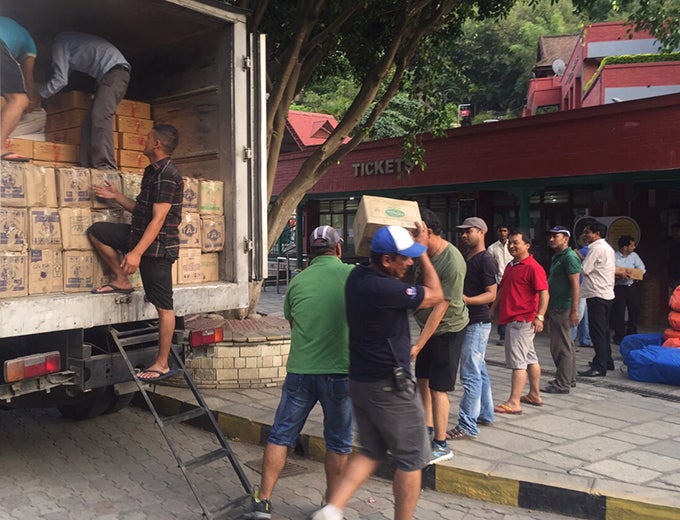
Nepal is coping with the consequences of a disastrous earthquake. During the next months the government will be under a lot of pressure to respond quickly to the needs of the population.
Public procurement units across the country will also feel this pressure. They will be deciding over the purchase of goods and services with taxpayer money. On the one hand, the purchases are urgently needed. On the other, there is a risk that taxpayer money can be wasted if decisions are taken too hastily.
One instrument that can be helpful in this kind of situation is a framework agreement. This should be part of any country’s Disaster Risk Management plan. Its aim is to have a procurement system ready that responds quickly to an emergency. But this quick response should not increase risks beyond what policymakers have defined as acceptable. Special procurement procedures for emergencies should be part of disaster management systems and should especially include tailored framework agreements.
The emergency framework agreements can encompass basic goods and services that are likely to be used in response to a serious emergency. For example, it can include goods such as drugs and medical supplies, emergency housing, fuel, mattresses, blankets, food and water. The agreement will define prices, distribution/delivery conditions and other complementary criteria. This will enable procurement units to issue purchasing orders against the agreement within minutes of an emergency.
There are a few consideration in the design of the framework agreement that are important. These include:
-
Delivery capacity: In case of emergency firms could themselves be affected by the emergency. In serious situations, the firms inside the agreement may be unable to produce and distribute. In some cases, it could be the lack of supplies for their own production that could create bottlenecks. Reducing this risk is important. Before an emergency occurs, it should be mandatory to know how resilient each vendor is when faced by a crisis. Another strategy is diversification. Having as many vendors as possible will help. Even better is if some of the vendors are from nearby countries that may be unaffected by the emergency.
-
Price speculation: During emergencies it is common to see some vendors trying to maximize prices. They will argue that this is justified by increased demand and supply shortages. Even suppliers with framework agreements might be tempted not to honor the contract and make money by selling at higher prices. The government must be tough on these kind of cases. The cost to the supplier of not fulfilling the agreement must be significant. Additionally, again, diversification is also advantageous.There are many other things that can be done to make procurement easier under emergency situations. But framework agreements are one simple and straightforward tool that should be part of any Disaster Risk Management plan.
Learn more about Framework Agreements and open procurement:
- What is the Framework Agreement: An interview with Haider Raza of the World Bank
- World Bank pushes for open tender system
- Second South Asia Regional Public Procurement Conference. Islamabad, Pakistan, March 25-27, 2014


Join the Conversation